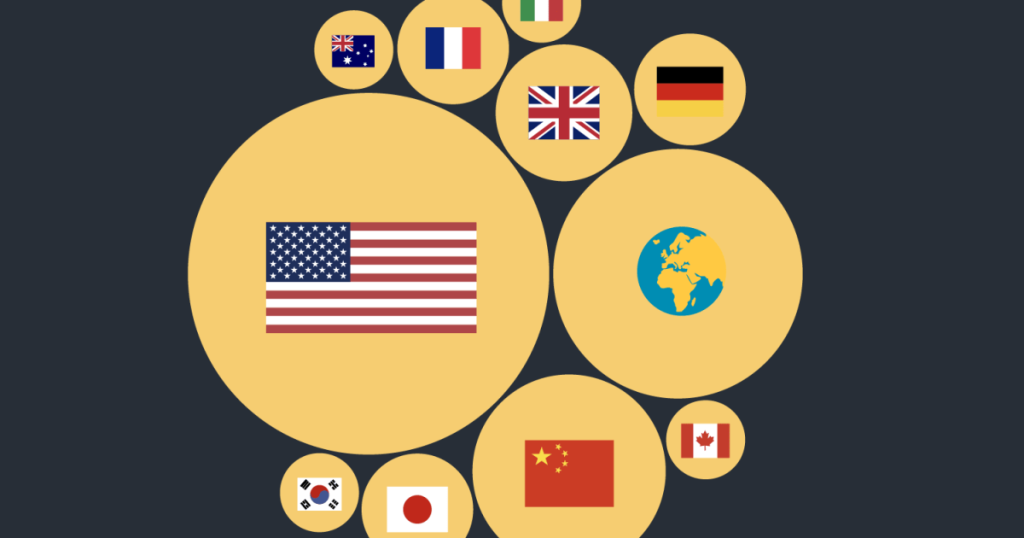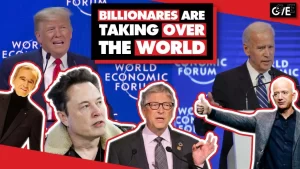Wealth without Borders: A Humanitarian Look at the Global Distribution of Millionaires

Global wealth is rising due to socioeconomic dimensions, sociostatus, inequality and the fraying social contract. This is not only an economic story, it is a profoundly human, political and social literal canvas.

According to the 2025 UBS Global Wealth Report, the number of dollar millionaires is growing faster than at any time in modern history. Yet behind this glossy picture of expansion lies a sobering truth: the overwhelming majority of these millionaires live in just a handful of countries, while billions elsewhere continue to face instability, poverty, and uncertain futures.
The latest data show that wealth accumulation is anything but evenly spread. While the United States remains the undisputed leader in millionaire numbers, followed by Mainland China, France, Japan, and Germany, vast regions, especially in Africa and parts of South Asia, remain on the margins of this financial boom.
For many, the gap is not abstract. It is felt in overcrowded hospitals, underfunded schools, and in the anxious eyes of young graduates who cannot find work while hearing about fortunes made across the ocean.
For families in Lagos, Nairobi, or Dhaka, the concentration of global wealth elsewhere translates into very real struggles. Rising global wealth has not shielded them from inflation, soaring food prices, or the climate shocks that increasingly batter their communities.
Consider Amina, a market trader in Dar es Salaam. “We hear of Africans becoming millionaires,” she says, “but here, most of us can’t even save.” Her story illustrates the lived experience behind the statistics: wealth accumulation in many developing regions remains the privilege of a few, while the majority continue to navigate uncertainty without safety nets.
Wealth creation and distribution are shaped not only by markets but by politics. In Western economies, tax regimes, stock market growth, and real estate booms have fueled millionaire numbers. In contrast, many African nations face persistent political instability, inconsistent policies, and fragile institutions that stifle investment and discourage capital retention.
At the same time, globalization and technology have made wealth more mobile than ever. Millionaires can shift assets across borders, protecting fortunes from local shocks, while ordinary citizens remain tethered to systems they cannot escape. This imbalance underscores how political structures determine who benefits—and who is left behind.
The growing concentration of wealth has profound social consequences. As millionaires multiply in New York, Shanghai, or Paris, inequality deepens within and across nations.
In countries with high numbers of wealthy elites, like the U.S. and France, debates about taxation, housing affordability, and generational fairness dominate political discourse. In poorer nations, the very visibility of global wealth, which is amplified through social media, fuels frustration, migration pressures and sometimes unrest.
The divide is not only economic but psychological: for many, the idea that prosperity is reserved for a distant “elsewhere” undermines faith in local opportunities and weakens social cohesion.
The latest ranking of 13 Countries with the most Dollar-Millionaires (According to UBS Global Wealth Report 2025)
| Rank | Country | Approx. Millionaires |
| 1 | United States | 23.8 million |
| 2 | Mainland China | 6.3 million |
| 3 | France | 2.9 million |
| 4 | Japan | 2.7 million |
| 5 | Germany | 2.6 million |
| 6 | United Kingdom | 2.6 million |
| 7 | Canada | 2.1 million |
| 8 | Australia | 1.9 million |
| 9 | Italy | 1.34 million |
| 10 | South Korea | 1.3 million |
| 11 | Netherlands | 1.27 million |
| 12 | Spain | 1.20 million |
| 13 | Switzerland | 1.12 million |
By contrast, the entire African continent is home to over 1.4 billion people, which accounts for only a tiny fraction of the world’s millionaire population.
The rise in global wealth reveals two simultaneous realities. On one hand, the world is richer than ever before; on the other, wealth concentration exposes the fragility of social contracts and the urgency of addressing inequality.
For policymakers, this raises pressing questions: Can financial globalization be harnessed for broader benefit? How can developing nations strengthen institutions to foster inclusive growth? And most crucially, how can we ensure that families like Amina’s in Dar es Salaam are not left behind in a world awash with wealth?
Global millionaire maps may grab headlines, but the deeper story lies in the lives lived beyond them. Behind every statistical rise are political decisions, social struggles, and human stories of both opportunity and exclusion.
As the world grows wealthier, the challenge is not simply to celebrate millionaire milestones, but to reimagine a global economy that serves people, whether in Wall Street boardrooms or in the crowded markets of Africa and Asia.







